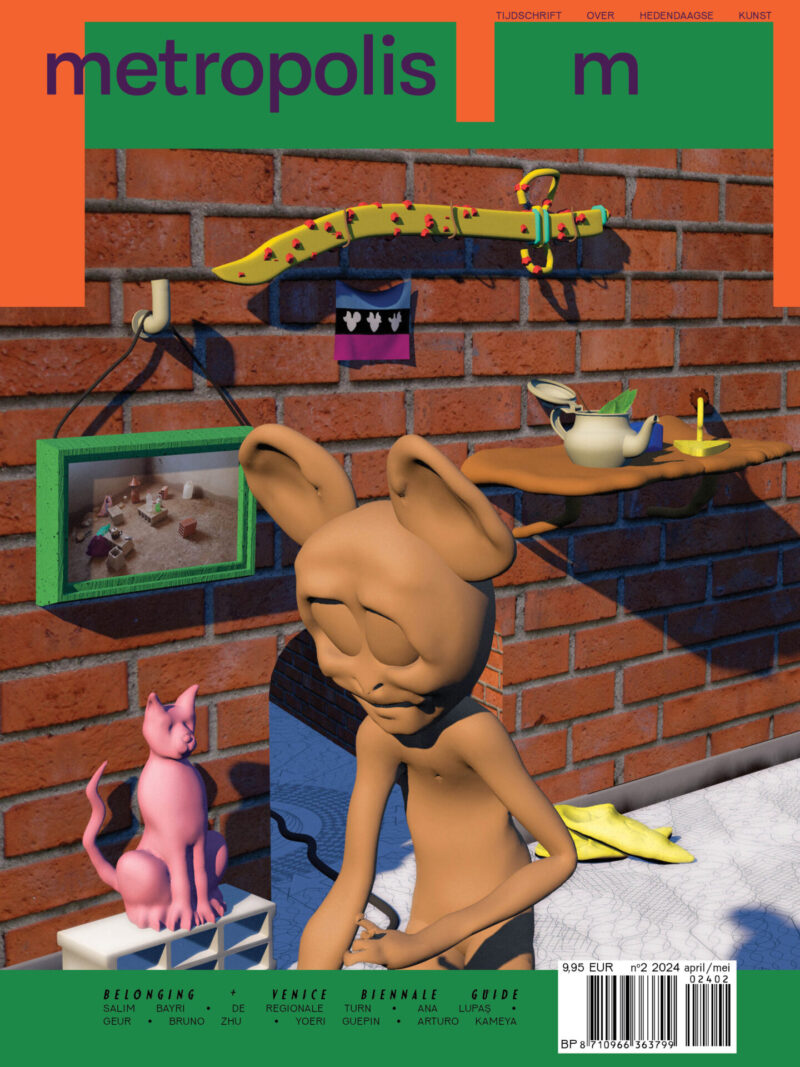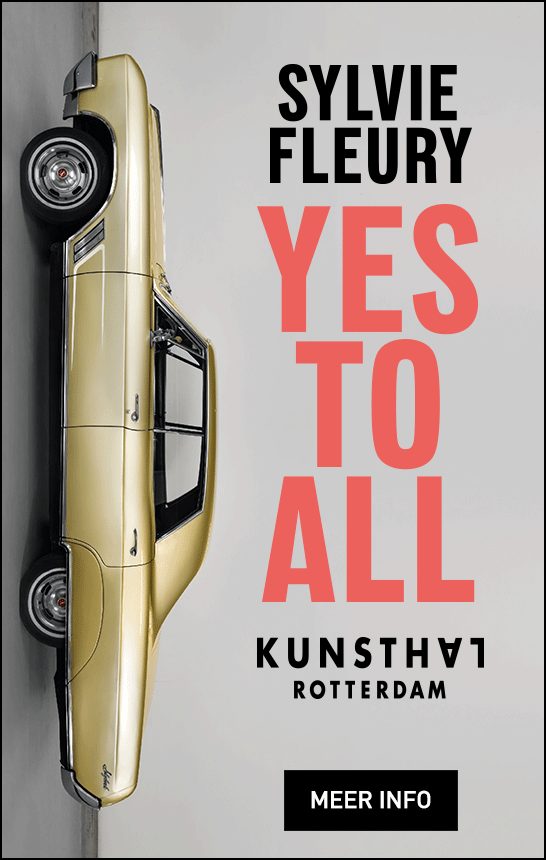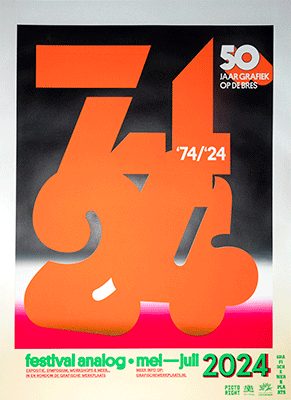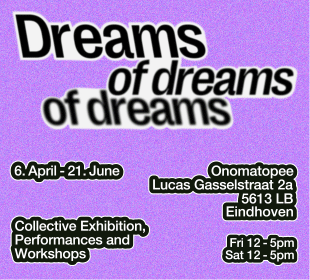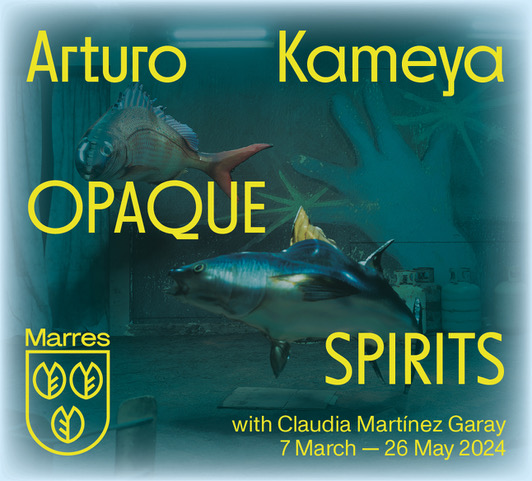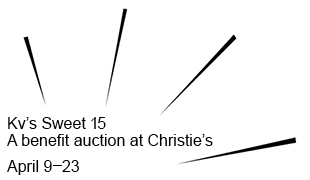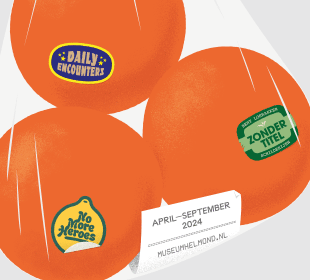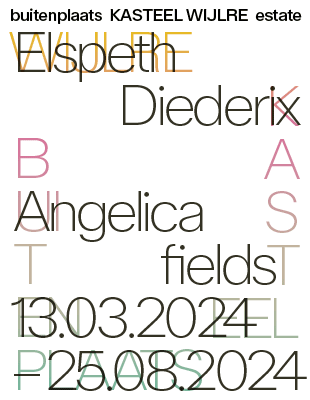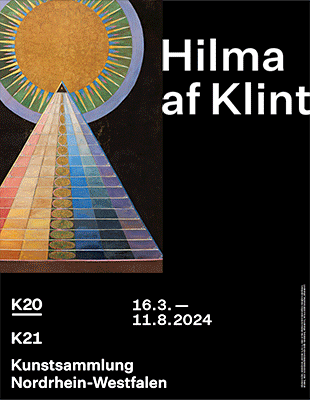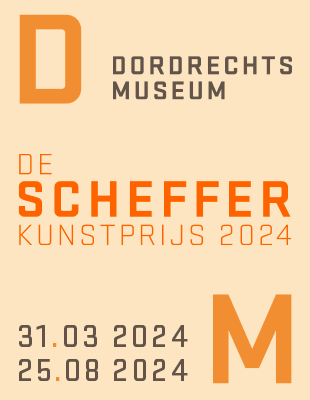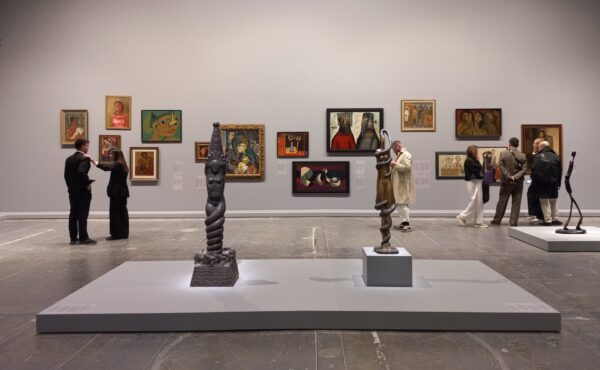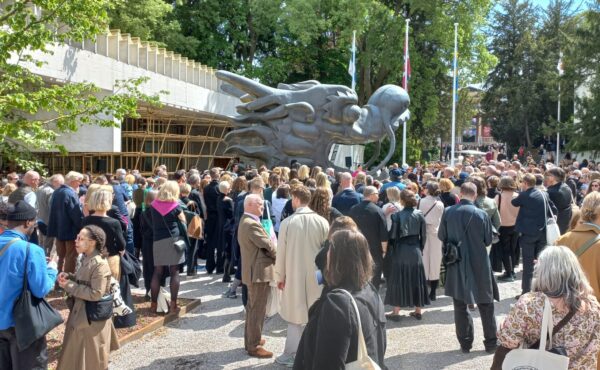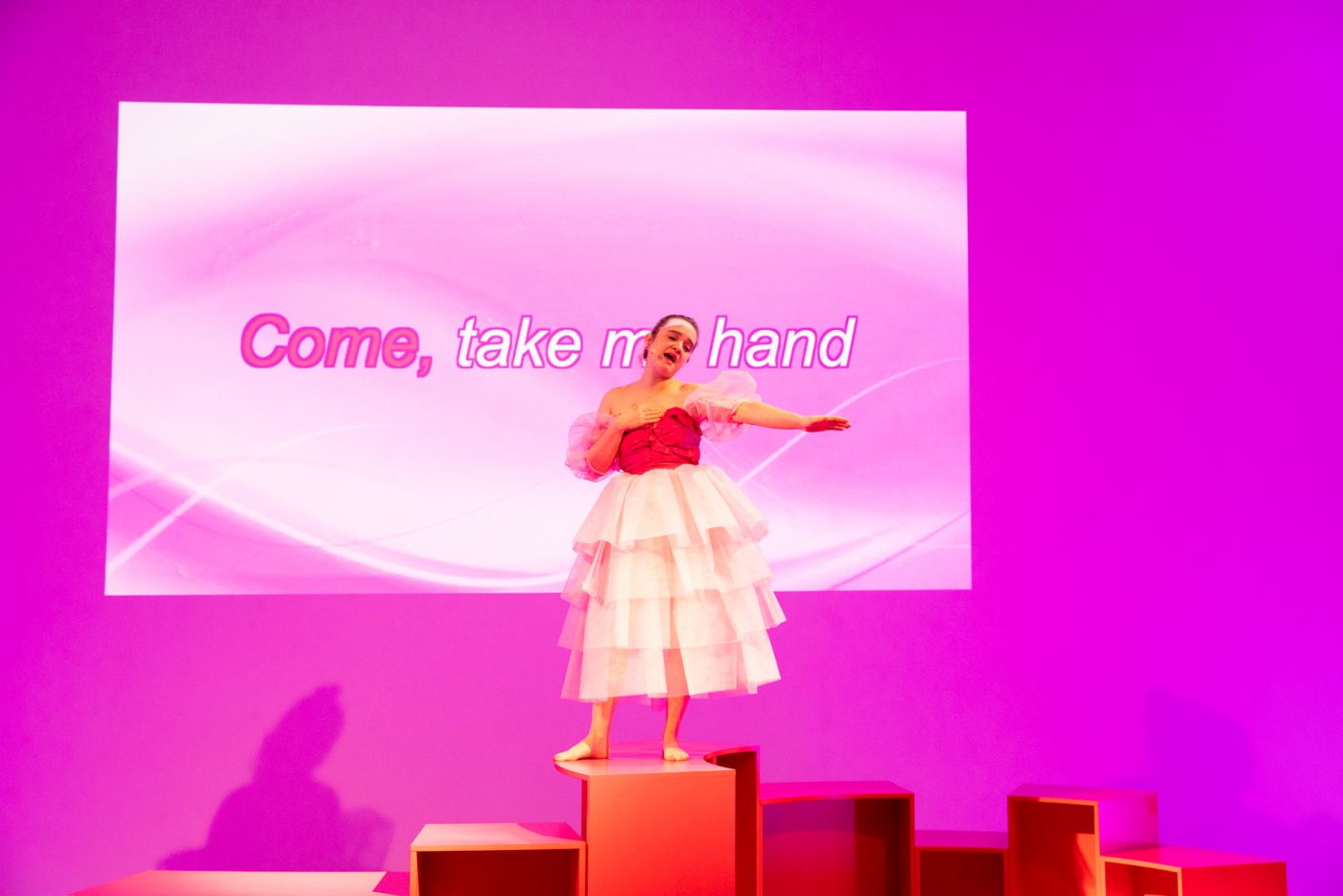
Marijke De Roover in De Pont op 15-02-2020, foto Gerdien Wolthaus Paauw
Marijke de Roover at De Pont – On Hold #2 & LIVE on March 21th – 16.00 hrs
Karaoke, feminist theory and love-coms in one: with Belgian artist Marijke De Roover’s (1990) video-installation and related performance De Pont’s new project space WOOL makes a trailblazing start. (Check her online live-performance on March 21).
De Pont announces De Roover’s video-installation with the words ‘captivating’, ‘camp’, ‘sharp’ and ‘vocally flawless’. It gives a hint of what Martijn van Nieuwenhuyzen, who became director of De Pont last June, must have experienced when he first saw the performance it is based on. The intense applause, the smiles and the cheering after the invigorating live performance suggest that he does not stand alone with his appraisal. It takes a lot of talent to make an artwork that seamlessly weaves personal love concerns, musical, opera, pop music, romantic comedies, lesbian love, gender, feminist theory, and theatre history together. And it takes more than a talented voice to sing like De Roover does.
[blockquote]De Roover seamlessly weaves personal love concerns, musical, opera, pop music, romantic comedies, lesbian love, gender, feminist theory, and theatre history together
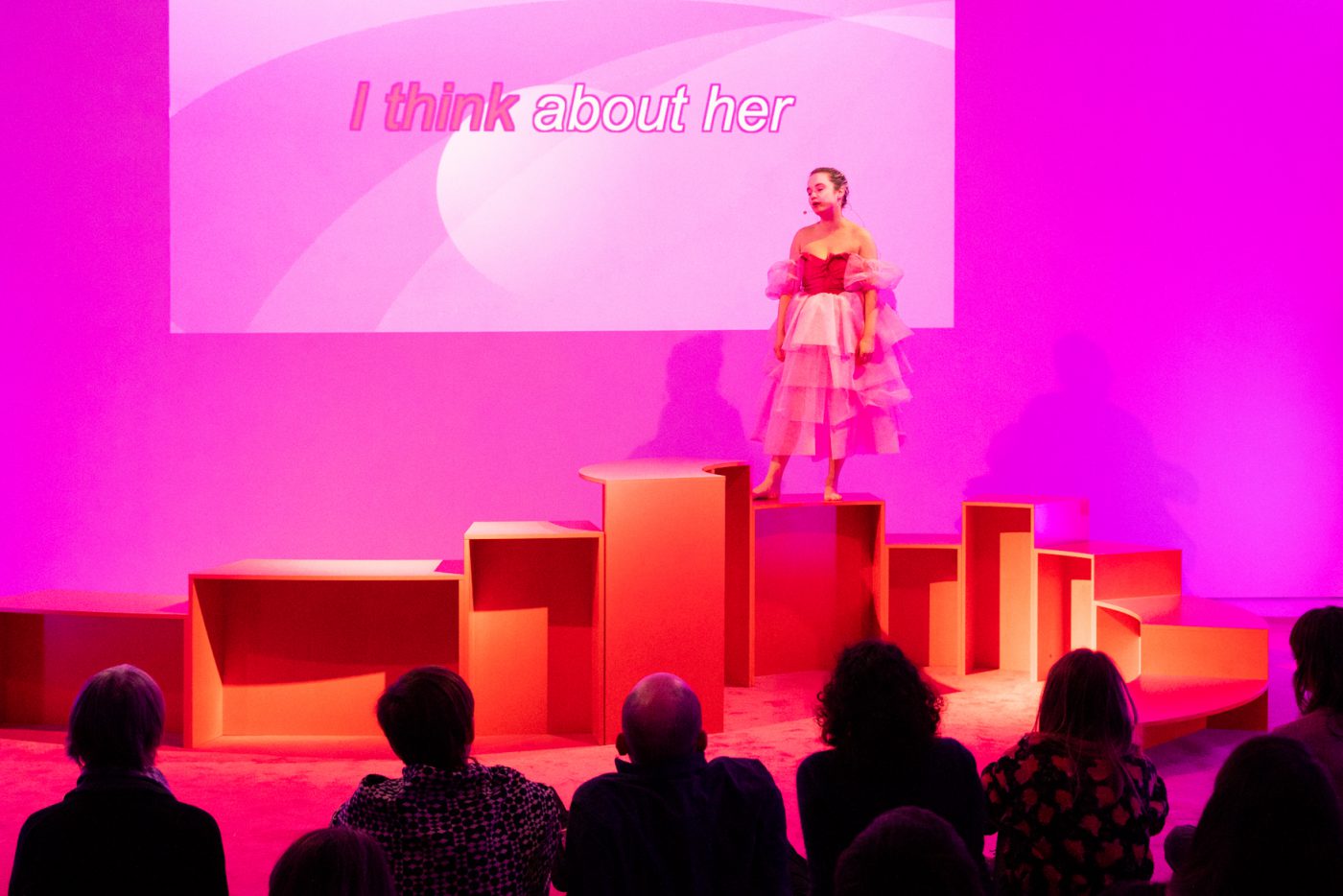
Marijke De Roover in De Pont op 15-02-2020, foto Gerdien Wolthaus Paauw
Upon entering WOOL visitors traverse a corridor adorned with images from De Roover’s series Niche Content for Frustrated Queers. It sets the tone of what will follow: a camp action filled with irony and critique. The pinkish coloured performance space with fitted carpet invites people to sit and lounge. A large S-curved red stage evokes the 1930’s Ziegfield Follies. Behind it, a video projection ironically takes on our culture’s obsession with copyright. The disclaimer reads as the artist’s excuse of sometimes using other people’s words: De Roover is, as stated, ‘jealous of those lines’. Appropriation brings a freedom wherein clever artistic self-consciousness sides with a camp mixture of karaoke, film, Händel, Queen and Celine Dion. It casts off any art-historical burden that may come with this practice. Questions of authenticity and truthfulness are made explicit in a witty way by stating that all characters or events are entirely fictional. The topic magnificently resurfaces at the end when the artist sings Shirley Bassey’s lines “Tonight I gave the greatest performance of my life. I never lost control I played the part so well. That not a single soul could tell that I was lying”.
The work is about love: falling in love, obsessively loving and love’s transformation in a mixture of love and friendship
Dressed in a pink tulle princess-like dress De Roover is a natural on stage. The performance is a clever interplay between theoretical musings, singing musical and pop songs, voice-over narration, a clever play with the fourth wall and video fragments from romantic movies, or better said: love-coms. For, the work is about love. It is structured in acts that follow the process of falling in love, obsessively loving and love’s transformation in a mixture of love and friendship, a state wherein intellectual bonding and pleasure coincide. From a philosophical perspective one can consider it as a musing on the (im)possibility of an ideal, perfect union. But capitalist logic, indifferent to people’s emotions, exhausts desire. De Roover states “the production chain can’t stop for your feelings”. From an existentialist perspective love always has to deal with the other. Enter Cher. In the movie Moonstruck she violently slaps Nicholas Cage who is obsessively in love with her. ‘Snap out of it!’, she shouts.
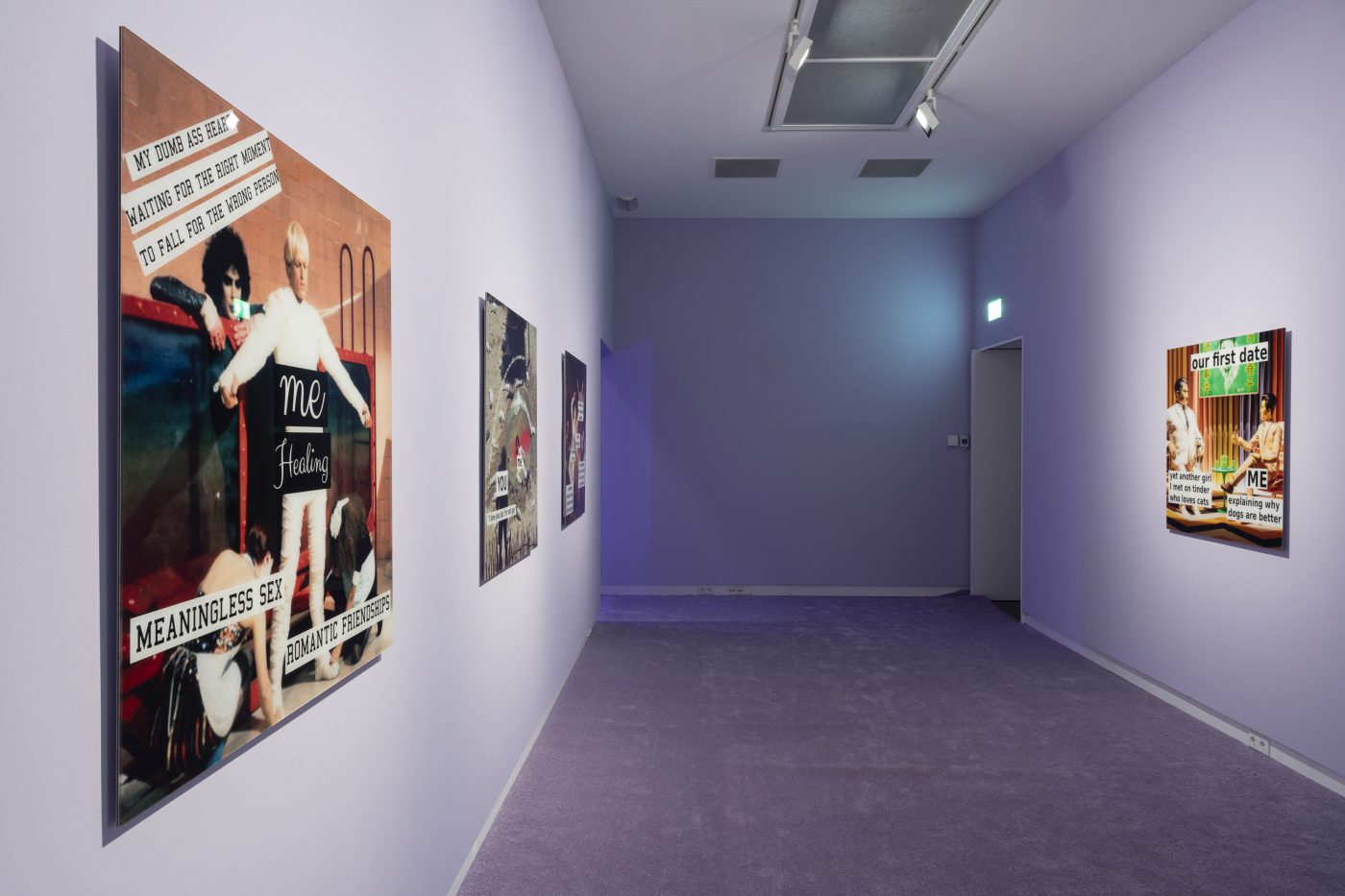
Zaaloverzicht Marijke_De_Roover in De Pont, 2020,_foto Peter Cox
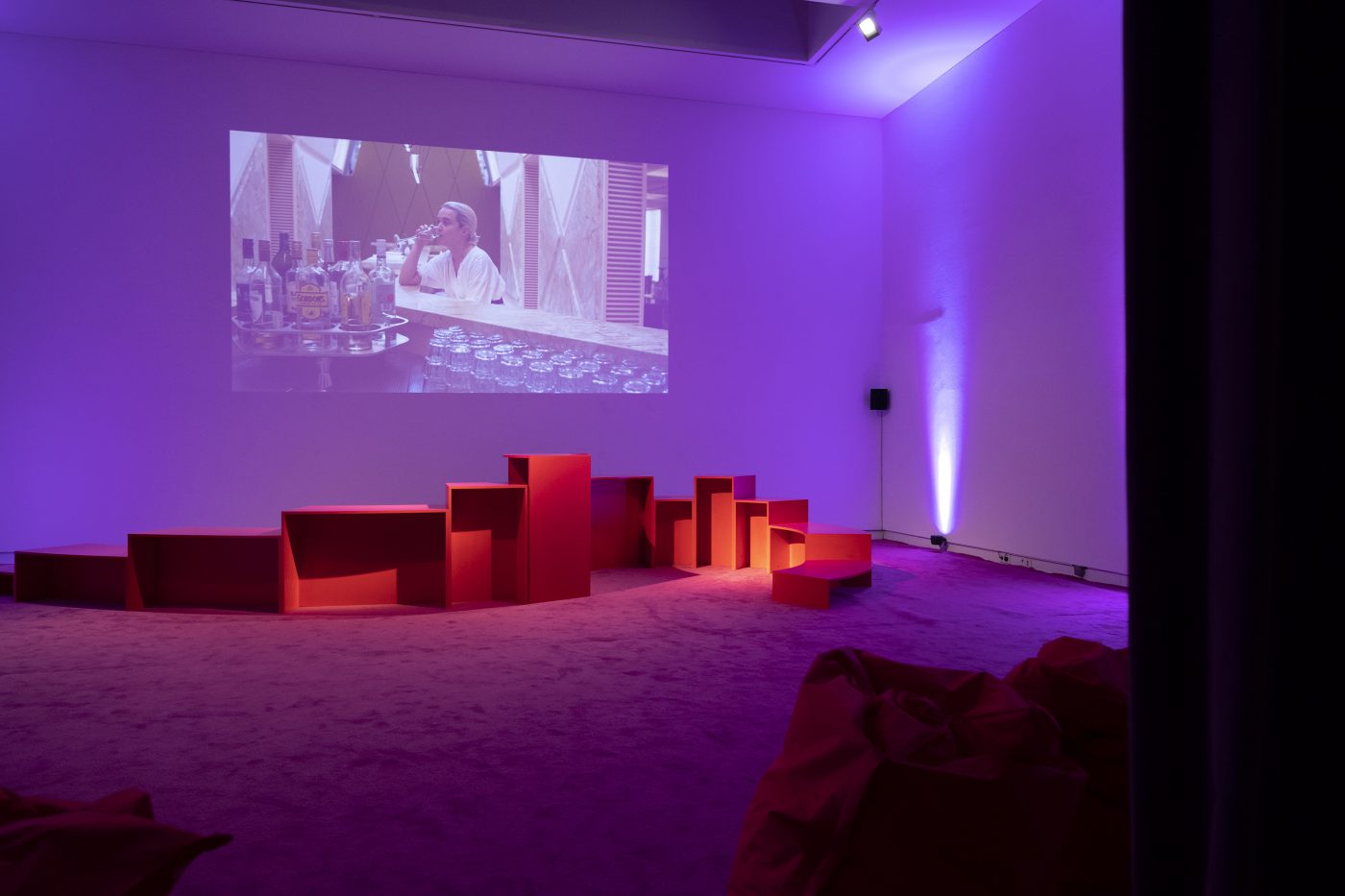
Zaaloverzicht Marijke_De_Roover in De Pont, 2020,_foto Peter Cox
Love is also burdened by its binary and heteronormative representation in pop songs and rom-com movies. Women, mostly portrayed as innocent and in love, are often rewarded with a man the artist states. Enter Bridget Jones, tragically miming Celine Dion’s “All by Myself” while Marijke De Roover sits on stage ironically copying Zellweger. De Roover reminds us that sexually active women are often a topic in movies that turn dark. A scene with the iconic Sharon Stone in Basic Instinct proves the point. The lesbian perspective is overtly present. Lotte is the object of love of the main character Elektra. In the video both roles are played by De Roover. A witty reference to the narcissism involved in love? In the performance Lotte is present as a voice, while De Roover is the Elektra who, near the end quietly sings Olivia Newton John’s “Guess mine is not the first heart broken”. A tender, kitsch moment that is ended with the statement that she, Elektra, is miserable, but also hopeful. I wonder, can we, abstractly, interpret the narration as a reflection on the relationship between performer and audience? A relationship one could characterize as affectively intellectual?
When Jennifer Fisher, after hours of waiting in line, did not get to sit with Abramovic in The Artist is Present, she analysed the social interaction in the queue. An impressive turn away from Marina the auratic epicentre. It is however a move from centre to margin that I do not recommend for A realistic portrayal. The epicentre is worth the visit; preferably the live performance, if not, the video-installation is a great stand in for the live event.
Follow Metropolis M on Instagram: metropolism_mag
Marijke de Roover will perform live, from home the 21st of March at 16.00 hrs. Follow her instagram: here or a special Facebook page: here
The video-installation A realistic portrayal of someone using love as an escapist drug is on view until May 3rd – now closed because of COVID-19.
Marijke De Roover will perform Live, Laugh, Limerence on April 18th, 3 PM and in the beginning of May (exact date to be announced).
Patrick van Rossem
is universitair docent hedendaagse kunst op de Universiteit Utrecht